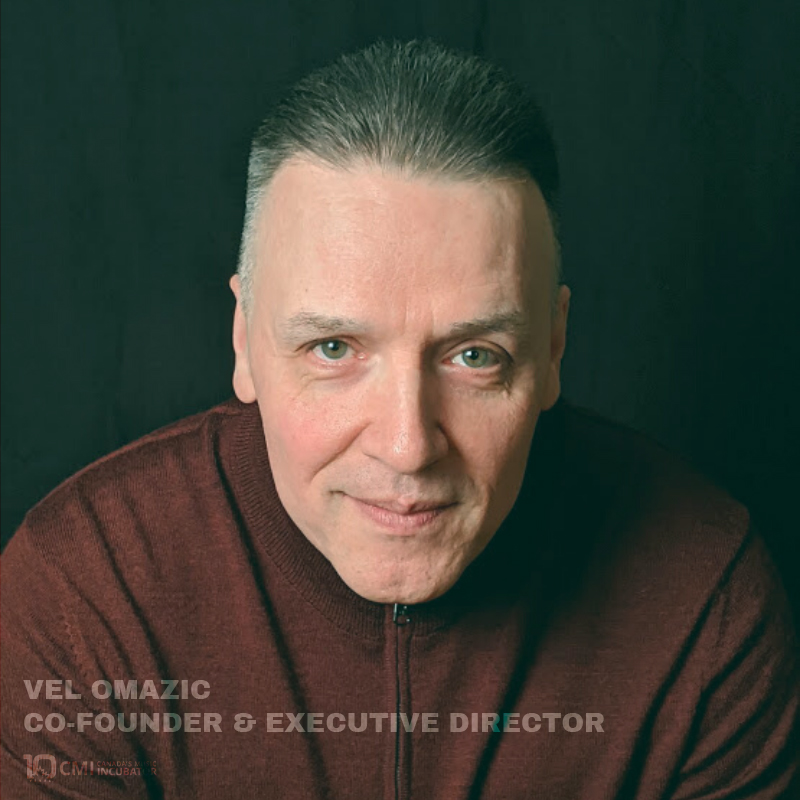
Vel’s View: 10 Years & 10 Lessons Learned

It’s amazing how 10 years evaporates when you’re consumed by the challenge of building something new.
I remember early 2012 when four brave artists arrived for AE#1. We knew that we wanted to help artists. We also knew we had plenty of knowledge and experience to share. What we didn’t know was exactly how were going to do it and, more importantly, if it was going to work.
The first few years were hard. There were some real touch-and-go moments. Like most start-ups, I’d say it took us about five years to make our way to solid ground. We gradually figured it out. We could clearly see the need and value in what we were doing. That fueled us. And, we knew were making a difference. When artists and organizations voluntarily started seeking us out, we knew we had reached a tipping point!
Fast-forward to 2021. It’s CMI’s 10th Anniversary year! In March, we’ll start AE#20 – virtually. In between, we’ve launched Artist Manager, AE West (in Calgary), CMI 1 on 1 and collectively traveled over 186,000kms across Canada running Bootcamps, One-on-One mentorship meetings and collaborating with music industry organizations, private companies and all levels of government. We’re talking 86 unique professional development programs and 7,500+ hours of mentorship. On top of that, dozens of artists and managers regularly access Ongoing Mentorship — over 2,000+ hours and counting. Fittingly, we’ll surpass 10,000 hours of total mentorship this year.
In late 2014, we re-branded as Canada’s Music Incubator (CMI), a distinct, national not-for-profit organization, and have grown to six full-time employees, along with a very talented network of creative mentors. A few years ago, we started CMI’s Live Events department and have booked over 500 performances across Canada and paid artists over $950,000+. We’ll surpass $1million in Live Events fees paid to artists this year.
Milestones are a great time for reflection. So, I wanted to share some of the business and personal lessons that CMI and I have learned in our first decade:
- Stop thinking about it and start doing it. Procrastination and fear love to masquerade as the pursuit of perfection.
- Embrace the path of most resistance. CMI doesn’t check any traditional organizational boxes. While challenging, I also think its been a blessing in many ways. We’re OK clearing our own path – it’s less crowded. The joys and the rewards are in all of the ups, downs, twists, turns, detours, and roadblocks encountered traveling the backroads.
- Success means much more when it’s accompanied by fulfillment. I’ve never worked harder at anything in my life than building CMI and I’ve never been more fulfilled.
- Artist development is people development. It’s equally as important for CMI to invest in the person as it is in their creative and entrepreneurial development. Artists don’t magically appear fully formed.
- It’s OK to operate a not-for-profit with a for-profit mindset. Please, let me explain. While CMI is very fortunate and grateful for the support of sponsors and funders, we realize being wholly dependent on them is risky and, potentially, limiting. Generating earned revenue and being in control of our own destiny is critical to our long-term viability.
- Dream big but don’t rush to do everything at once. Start by crawling. Then, gradually, ease into walking. Eventually, it’ll be time to start running. I’d say CMI is hitting its power walking stride.
- Artist development doesn’t happen during a panel, conference or an eight-week program. True artist development demands the patience and willingness to commit long–term. That’s what CMI signed up for. We choose to stand, walk, and work side-by-side with the artists and industry professionals we support.
- Being an expert at your job doesn’t intrinsically make you an effective mentor. I’d say the ability to be generous, to be genuine, to listen, to communicate at the appropriate level, and to empathize are good places to start.
- The best marketing plan is consistently showing up and doing the work. Build something worth marketing first.
- In order to fix the music sector’s infrastructure challenges, it’s going to take vision, a 10-20–year plan, the combined work of the music sector, academia, private enterprise and government, and patience. Band-aids aren’t going to do it for a wound that runs deep.
- Alberta is extremely rich in another natural resource that might be overlooked: music. Hey, it’s the music industry, we’re allowed to take it to 11!
Thanks for being a part of CMI’s journey. We can’t wait of the ups, downs, twists, turns, detours and roadblocks that lurk in the 10 years ahead of us. Strap yourself in. Here we go!



